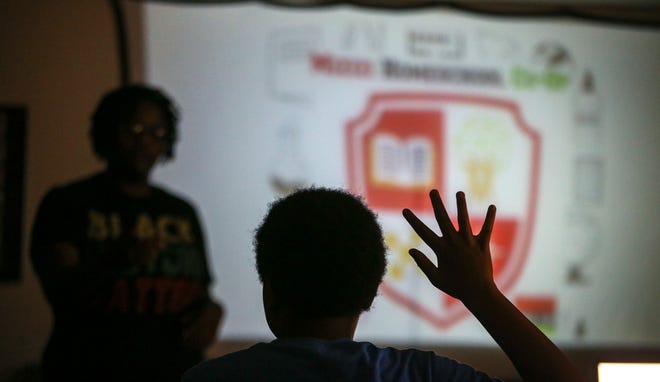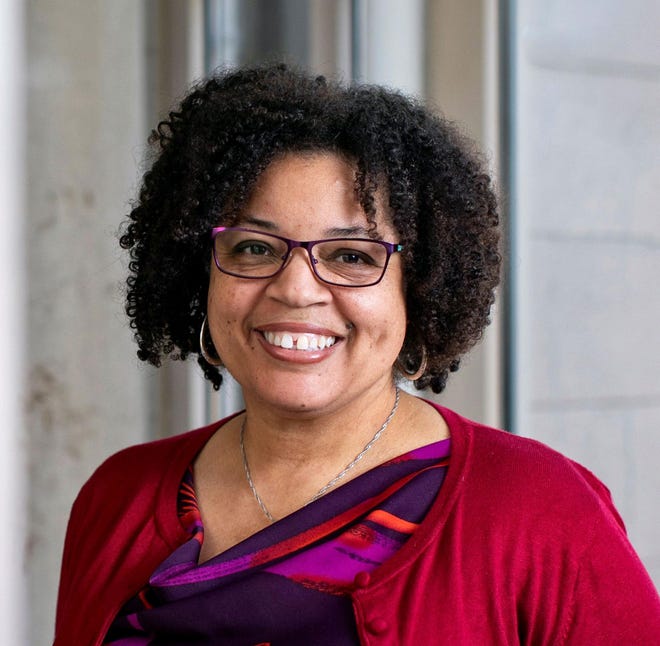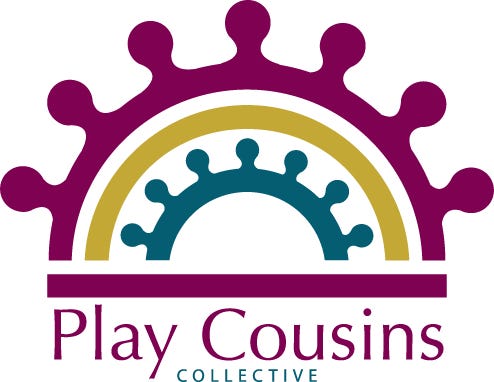Source: The Courier-Journal
By Andre Toran
January 22, 2021
In the late summer of 2019, Claude Stephens, director of Bernheim’s Children at Play Network, walked into the office of Play Cousins Family Network Collective, a family outreach organization in Louisville.
He was there to meet with Play Cousins’ executive director Kristen Williams to discuss a possible collaboration. Williams wanted to create a Rites of Passage program for Black youth in the city and wanted to work with him and Stacy Bailey-Ndiaye, executive director of Bridge Kids International.
Rites of Passage is a ritual or experience that marks a major shift or milestone in someone’s life, in this case, a transition from childhood into adulthood.
This program aims to provide Louisville’s Black youth with space and resources to explore and discover who they are and how to actualize this as they move toward adulthood through connecting them to apprenticeships and honing whatever skills the students possess.
Williams, Bailey-Ndiaye and Stephens said the Rites of Passage idea is an “ancient” concept with deep roots in African culture that is a means of preparing and grooming the next generation for life as an adult.

Without programs like Rites of Passage, children often enter the real world “blind,” and can easily become products of their circumstances, they said, failing to see that they can be more than what their surroundings suggest.
The grandidea became reality when The Jewish Heritage Fund for Excellence extended a $200,000 grant to the three organizations earlier this year to develop an immersive Rites of Passage program, which will include interactions with nature as part of its youth development.
The program will be offered to Black teens in Louisville ages 14-18. The goal is to learn from other Rites of Passage programs and create their own approach based upon the wants, needs and realities of the children they serve in Louisville, Bailey-Ndiaye said, with an emphasis on Black culture.
The three organizations had their first meeting to design the program earlier this month and for the next six months, they will design the specifics of the initiative. They expect to create the program through participatory design by asking teens what they think they needto learn to become a productive adult.
The second phase will feature a six-month pilot program to test the curriculum, followed by the launch of the Rites of Passage program, which they hope will include apprenticeships and tech partnerships, in 2022.

Future tech partnerships do not reduce the role Bernheim will play, however. It’s vital that Bernheim provide a space to help reconnect Rites of Passage students with its traditional roots in nature.
“We started talking about the importance of Black children having access to free-play and how that plays into growing up in a racist society. How their actions (within free-play) can be criminalized.” Williams said.
So, the questions arose: How could they create spaces — especially those in nature — where Black children can be “free?”
The partnership with Bernheim partially answers this question, and according to Williams, Bernheim’s space will help teach those in the program to express themselves and safely take up as much space as they need. She was quick to note, however, that interactions with nature won’t just be reserved for spaces in Bernheim.
The organizations want children to take what they learn back to their neighborhoods and communities.
Community change — both physically and culturally — will begin with them, they say.

“We believe that young people are productive, capable of being very important members of the community, “ Stephens said. “And mostly what we do is we get in their way — setting situations and systems that damage them.
“So, the Rites of Passage program is not to provide them with anything but the resources, a place and a community to help figure out they want to be productive adults in their community.”


